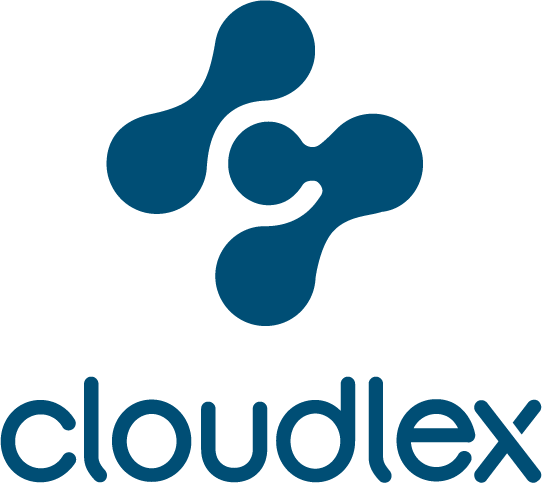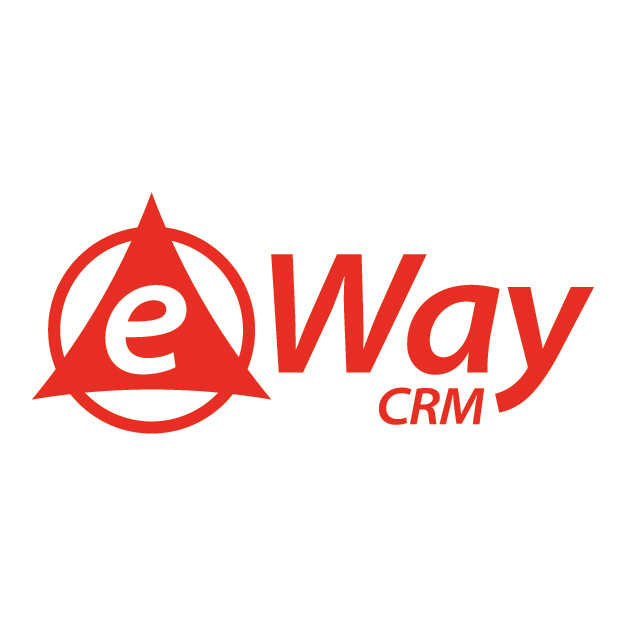Yes, law practice management software may be accessed from various devices and platforms. This implies that you may use the software on a desktop, laptop, tablet, or smartphone, and it works with both PC and Mac operating systems. This enables lawyers to run their practice from any location, making it easier to keep organized and on top of critical responsibilities. Furthermore, most software includes a mobile app for convenient access on the road.
List of 20 Best Law Practice Management Software
Insight Legal is a cloud-based software created for law firms in the UK and Ireland. Our platform simplifies legal accounting, ensures compliance, and enhances overall case management by utilizing intelligent workflows and automated billing. Experien...Read More Insight Legal
DocuLeg solution for legal professionals including lawyers, paralegals, and notaries. Our cutting-edge AI technology simplifies the creation of detailed legal documents by seamlessly integrating client information. Discover the immense capabilities o...Read More DocuLeg
Zelican: a, cloud-based platform built to enhance operations for Corporate Legal Departments, Law firms, Lawyers, and Attorneys. Boasting a user-friendly interface and modern design, Zelican provides a diverse set of tools to streamline all legal tas...Read More Zelican
PerformYard is a cloud-based performance management software designed for industries such as healthcare, accounting, and information technology. With a user-friendly interface and various communication options, including email and phone support, Perf...Read More PerformYard
Rolling Legal - an innovative practice management platform for law firms. This cutting-edge software is specifically designed to simplify day-to-day tasks for lawyers, giving them more time to focus on their clients. With a versatile and customizable...Read More Rolling Legal
Legal Suite solution for all your legal requirements. This comprehensive software streamlines legal procedures, enhances contract handling, and provides insightful reporting. It is trusted and utilized by leading experts, empowering legal teams to ef...Read More Legal Suite
Amberlo is a legal practice management software designed specifically for law firms. Our user-friendly and secure platform streamlines case management, billing, and client communication, increasing efficiency. With Amberlo, lawyers can easily access...Read More Amberlo
FORDATA VDR solution for smooth and secure online Due Diligence and M&A transactions. Our user-friendly setup, round-the-clock support, and advanced security measures offer an unparalleled experience in keeping your confidential documents safe and ea...Read More FORDATA VDR
Boost your legal research game with LIBRA is a all-in-one Legal Research software designed for SMEs, Enterprises, and Agencies. Simplify your legal research process with features like Case Law Research, Annotations, Tax Law Research, and Search Histo...Read More LIBRA
Litify is a specialized legal platform that revolutionizes the way law firms and in-house teams operate. Our cutting-edge solution streamlines processes, offers live data, and automates tasks to foster continuous success and business growth. With Lit...Read More Litify
Actionstep is a top-tier legal business management software designed specifically for midsize law firms. It offers a comprehensive suite of tools to enhance workflow and enhance client satisfaction. This all-in-one solution includes features such as...Read More Actionstep
CloudLex is a personal injury legal software designed for plaintiff firms. Effortlessly manage every aspect of your practice, from client intake to case resolution, and beyond. As the undisputed choice for the legal industry, CloudLex provides Legal...Read More CloudLex
CARET Legal, the essential solution for legal professionals to optimize their workflow and prioritize client satisfaction and time management. Stay ahead of the competition with our innovative software, tailored to boost your practice and maximize bi...Read More CARET Legal
Matter365 is a practice management solution powered by Microsoft Office365. Exclusively designed for law firms, Matter365 provides a comprehensive toolkit to oversee all aspects of your legal practice. From efficient time tracking and invoicing to st...Read More Matter365
eWay-CRM: a system that seamlessly integrates with Microsoft Outlook, allowing users to work within a familiar interface. No extensive training is needed for sales professionals to start using the software, increasing productivity and streamlining wo...Read More eWay-CRM
Paperform is an intuitive form automation software that enables you to effortlessly build personalized online forms, no coding required. With its user-friendly interface, you can swiftly create visually appealing and informative forms for any purpose...Read More Paperform
PageLightPrime, the most comprehensive legal practice management software designed for Office 365. Effortlessly handle every aspect of your cases with cutting-edge features such as document assembly and management, leveraging the power of SharePoint...Read More PageLightPrime
Manage My Lawsuits is is a solution for managing your legal cases. Designed to streamline case handling and foster collaboration among your team, our software automates legal processes. With features like automatic hearing date reminders, efficient d...Read More Manage My Lawsuits
LEX247 is a legal practice management solution that boosts productivity, confidentiality, and teamwork. This cutting-edge cloud-based software simplifies workflows, integrates seamlessly with essential tools, and enables legal professionals to manage...Read More LEX247
App4Legal is a legal technology solution designed to streamline case management, automate contract procedures, and optimize billing processes for legal professionals. Our platform offers secure document storage, customizable workflows, and tools to e...Read More App4Legal
Learn More About Law Practice Management Software
- What Is Law Practice Management Software?
- What Are The Recent Trends In Law Practice Management Software?
- Benefits Of Using Law Practice Management Software
- Important Factors To Consider While Purchasing Law Practice Management Software?
- What Are The Key Features To Look For In Law Practice Management Software?
- Why Do Businesses Need Law Practice Management Software?
- How Much Time Is Required To Implement Law Practice Management Software?
- What Is The Level Of Customization Available In Law Practice Management Software?
- Which Industries Can Benefit The Most From Law Practice Management Software?
- Conclusion
What Is Law Practice Management Software?
Law practice management software is a specialized technology that helps legal professionals streamline and organize their daily tasks, papers, and client data. It combines case management, time tracking, billing, and communication functions into a single platform, making it an indispensable tool for law firms, solo practitioners, and in-house counsels.
This program promises to improve efficiency, productivity, and communication among legal teams by automating mundane operations, centralizing critical data, and offering real-time insights and analytics. One of the primary tasks of legal practice management software is case management, which enables lawyers to track and manage their cases at every level, from initial consultation to final resolution.
It allows users to save all case-related papers, correspondence, and deadlines in one location, making it easier to find and access information. This feature also features task management, which allows users to assign and track tasks within their teams, ensuring that everyone is on the same page and that progress is accomplished efficiently. Time monitoring and billing are critical aspects for lawyers, who frequently work on a billable hour basis.
All billable hours may be carefully managed and recorded with law practice management software, reducing the possibility of missing or losing time. This not only increases billing accuracy, but also gives lawyers a clear picture of their time management and productivity. Furthermore, this software frequently contains integrated accounting and financial features, making it easier to manage spending, create invoices, and track payments.
Communication is essential in the legal industry, and law practice management software provides a variety of communication channels, including email, instant messaging, and document sharing, all within the platform. This allows for efficient and secure communication among team members, clients, and other parties involved in a case. Some software even includes client portals where users may access case information, contact with the legal team, and view invoices and billing history.
Furthermore, law practice management software has data analytics and reporting features that can provide significant insights into a law firm's performance. This tool generates reports on billable hours, revenue, expenses, and general productivity, providing lawyers with a detailed understanding of their firm's financial health and areas for development.
What Are The Recent Trends In Law Practice Management Software?
There have been recent improvements and developments in the field of legal practice management software. As the legal profession evolves, these software solutions adapt to suit law firms' shifting needs and demands.
We'll look at some of the latest trends in law practice management software that buyers should be aware of.
1. Cloud-Based Solutions: One of the most significant trends in legal practice management software is the transition to cloud-based solutions. These cloud-based solutions have numerous benefits, including quick access, remote collaboration, and automated updates. They also eliminate the need for on-premise servers, which lowers IT expenditures for legal firms.
2. User-Friendly Interfaces: Another trend in legal firm management software is an emphasis on user-friendliness. As more lawyers and legal professionals turn to technology to optimize their operations, software companies are making their solutions more intuitive and user-friendly. This enables faster acceptance and better exploitation of the product by all users.
3. Integration With Other Tools: Law practice management software can no longer be used in isolation. This has resulted in a tendency toward integration with other critical tools such as document management systems, e-signature solutions, and accounting software. These linkages enable a smooth flow of data and information, increasing overall efficiency.
4. Automation: With the growing number of administrative activities that lawyers and businesses must undertake, automation has become a critical trend in law practice management software. This involves automating document assembling, time tracking, billing, and other common processes. It not only saves time, but also lowers the possibility of human error.
5. Mobile Applications: In today's fast-paced environment, lawyers and legal professionals must be able to work on the move. This has resulted in the creation of mobile applications for legal practice management software. These apps enable lawyers to access case material, log time, and complete other activities using their smartphones or tablets.
6. Data Security: Since law firms handle sensitive and secret client information, data security has become a primary focus in law practice management software. To protect sensitive data from cyber threats, providers are putting in place advanced security measures including data encryption and encrypted backups.
Benefits Of Using Law Practice Management Software
legal practice management software is a critical tool for legal companies of all sizes. It enables lawyers to manage their daily responsibilities more efficiently and streamlines the whole legal workflow, from client intake to document management to billing and accounting.
We'll look at the advantages of utilizing law practice management software and how it can help you improve your legal practice.
1. Centralized Case Management: One of the most major advantages of adopting law firm management software is that it consolidates all of your cases and matters in a single location. With just a few clicks, lawyers may access all of the critical information about a case, including client details, documents, tasks, deadlines, and communication history. It eliminates the need for numerous software and manual record-keeping, resulting in time savings and increased efficiency.
2. Improved Client Communication: Law practice management software allows lawyers to communicate with their clients at all times. The platform includes client portals and secure chat, allowing lawyers to communicate changes, documents, and invoices with clients in real time. This not only improves communication but also increases customer happiness.
3. Streamlined Time Monitoring And Accounting: One of the most difficult tasks for legal firms is effectively monitoring and accounting for their time. Law practice management software automates time recording, removing the possibility of human error. It also simplifies invoice preparation and tracking, allowing law firms to better manage their money.
4. Improved Document Management: Law firms deal with a large volume of documents every day, making it difficult to keep track of them all. Law practice management software includes document management functions, allowing lawyers to easily store, organize, and access documents. The software also includes version control, which ensures that only the most recent and relevant documents are used.
5. Efficient Task Management: Lawyers handle a large number of responsibilities on a daily basis, thus excellent task management is critical. Law practice management software includes tools like task lists, reminders, and deadlines to ensure that no tasks slip between the cracks. It also enables lawyers to assign tasks to their team members and track their progress, so enhancing productivity and responsibility.
6. Real-Time Analytics And Reporting: Law practice management software has extensive analytics and reporting capabilities, empowering lawyers to make data-driven choices. It gives real-time information on billable hours, expenses, and revenue, allowing businesses to stay on track with their financial objectives.
Important Factors To Consider While Purchasing Law Practice Management Software?
When it comes to selecting legal practice management software, there are numerous crucial elements to consider to ensure that you make the best option for your company. These criteria will have an impact not only on the software's effectiveness and efficiency, but also on your practice's overall performance.
As a professional content writer, I've identified the main criteria to consider while analyzing and selecting legal practice management software.
1. User-Friendly Interface: The first and most important consideration is the software's usability and user friendliness. As a legal professional, your first goal should be to serve your clients, not to struggle with complex software. The software's interface should be basic and intuitive, allowing you and your team members to simply traverse it. This will save time and increase production, allowing you to concentrate on your primary responsibilities.
2. Practice-Specific Features: Different areas of law necessitate distinct features and tools. Ensure that the software you select has all of the functionality required for your practice area. If you are a criminal defense attorney, the program should provide case monitoring and administration, document management, and scheduling features. Similarly, if you are a family lawyer, your software should have functions such as client administration, time tracking, and billing.
3. Cloud-Based System: In today's fast-paced business environment, a cloud-based legal firm management software is vital. It enables you and your team to access critical data and documents from anywhere and at any time. This is particularly significant for law firms that operate remotely or virtually. Furthermore, cloud-based software provides automatic backups, which improves data security and lowers the danger of data loss.
4. Customization And Integration: Each legal firm has distinct processes and workflows. As a result, it is critical to select software that is easily customizable to meet your individual requirements. The program should also be able to interact with other tools and software used in your practice, such as accounting or document automation solutions. This ensures a smooth process and prevents work duplication.
5. Data Security And Compliance: Law firms handle sensitive and personal client information, thus data security is a major issue. As a result, it is critical to purchase software that includes strong security features such as encryption and data backup. Furthermore, confirm that the software complies with applicable industry standards and regulations, such as the General Data Protection Regulation (GDPR) and the Health Insurance Portability and Accountability Act.
6. Cost And Scalability: Law practice management software comes in a variety of sizes and price points. Before making a decision, think about the cost of the software, including any recurring costs. Consider your legal firm's potential expansion and whether the software can scale to meet it. It is usually preferable to invest in software that can scale with your company rather than switching to a new one later.
What Are The Key Features To Look For In Law Practice Management Software?
When looking for Law Practice Management Software, there are numerous critical elements to examine to ensure it matches your law firm's specific requirements. These features not only boost efficiency and productivity, but also aid in client administration, legal case tracking, and financial management.
Here are the key elements to look for in Law Practice Management Software:
1. Matter Management: The software should include a sophisticated matter management system that allows you to organize and track all cases, documents, and tasks linked with a given matter. This tool streamlines procedures and ensures that nothing falls through the cracks.
2. Time Tracking And Billing: Efficient time and billing features are critical for any legal business. The program should make it easy to track billable hours and produce bills for clients. This not only saves time, but also guarantees accurate and timely billing.
3. Document Management: Law firms rely on an effective document management system to store and access a vast number of legal documents. Look for software that provides document storage, sharing, version control, and secure access to maintain confidentiality.
4. Client Management: Effective client management features are critical for building solid client connections. The software should include a contact management system, client portals for simple communication and document exchange, and client intake forms for new customers.
5. Calendar And Task Management: Lawyers may struggle to keep track of various appointments, court dates, and deadlines. The program should include a calendar and task management system that allows you to remain on top of crucial events and tasks, ensuring that nothing is neglected.
6. Legal Case Tracking: The program should include a module for legal case tracking that allows you to assign tasks, track progress, and engage with other team members on the case. This saves time and increases case management efficiency.
7. Reporting And Analytics: A sophisticated reporting and analytics tool can provide valuable insights into your legal firm's success. It should provide customisable reports on billable hours, fees, expenses, and other financial data to assist in decision making and financial planning.
8. Integration With Other Tools: Law practice management software should function seamlessly with other tools you use in your daily workflow, such as accounting software, document management systems, and e-discovery software. This guarantees a seamless and fast workflow with no data duplication.
9. Security And Compliance: Law firms must prioritize data security and compliance, particularly when working with sensitive information. The software should include advanced security features such as data encryption, secure user access, and adherence to industry requirements like HIPAA and GDPR.
10. User-Friendly Interface: Finally, the software's interface should be simple to use and require little training. This enables a smooth learning curve and widespread acceptance among all members of your law business.
Why Do Businesses Need Law Practice Management Software?
Businesses, particularly law firms, handle a tremendous amount of sensitive information on a daily basis. From customer information to case specifics, a comprehensive system is required to effectively handle and organize this critical data. Here's where law practice management software comes in. legal practice management software is a specialized application that helps legal firms streamline their daily operations, improve workflow, and increase overall efficiency.
It provides a variety of functions, including case management, document management, time tracking, billing, and accounting, all in one unified platform. Having such software in place not only saves time, but also reduces the possibility of human error, resulting in accurate and up-to-date information. Furthermore, with increased competition in the legal profession, gaining an advantage over your competitors is critical.
Law firm management software can give you an advantage by enhancing efficiency, improving client communication, and eventually leading to higher customer satisfaction. Furthermore, as organizations become more digitalized, staying up to date on the latest technology is critical to remaining competitive in the market. Law practice management software provides cloud-based solutions that enable lawyers to access client information and case details from anywhere, at any time.
This program not only manages data but also funds. It delivers extensive data and analytics to help law firms make informed business decisions. Furthermore, keeping track of billable hours, expenses, and invoices becomes easier and less likely to result in discrepancies. Security is another critical factor to consider when dealing with sensitive information.
Law practice management software includes advanced security safeguards that protect confidential data from unwanted access and cyber-attacks. In essence, businesses require law practice management software to increase productivity, improve customer satisfaction, stay current with technology, and protect data. It simplifies work procedures, saves time, and lowers expenses. As a result, investing in this software is a critical move that will benefit any law company in the long term.
How Much Time Is Required To Implement Law Practice Management Software?
The time necessary to deploy legal practice management software varies based on a number of factors, including the size of your business, the complexity of your processes, and the software's customization capabilities. On average, a complete implementation can take between a few weeks and a couple of months. Set aside time during the implementation phase to complete tasks such as data migration, software configuration, training, and testing.
This is often a collaborative endeavor between your IT team, software vendor, and key stakeholders within your company. It is crucial to note that the implementation time can also be influenced by your team's preparation and willingness to using the new program. To achieve a seamless and timely implementation, a dedicated project manager and well-defined implementation plan are required.
Some software suppliers may charge for implementation support, whilst others may include it as part of the package. It is recommended that you inquire about the implementation method and timeline before making your purchase to ensure that it meets your company's objectives and expectations. Overall, investing time in a proper implementation process is critical to ensure a successful and smooth transition to legal practice management software. It can lead to increased efficiency, production, and organization within your company, benefiting both your clients and your bottom line.
What Is The Level Of Customization Available In Law Practice Management Software?
When picking legal firm management software, one of the most important elements to consider is the level of customization offered. This refers to the capacity to customize the software to match the unique requirements of your law company. Law firm expectations and standards are continuously changing in today's fast-paced, technology-driven legal market. As a result, having adaptable software that can adapt to these changes is critical to the success and efficiency of a law firm.
What level of customization is available in legal practice management software? It varies per software, but most respected software vendors provide extensive customization choices. This allows law firms to use the software to their advantage rather than the other way around. Document templates, processes, client and matter information, billing and invoicing, reporting, and dashboards are some examples of customizable elements in legal practice management software.
Additionally, some software may let you to create custom fields, add user-defined tabs, and interface with other software and apps. When determining the extent of customisation, it is critical to examine the simplicity of customizing certain features. Is it a straightforward and user-friendly process, or does it necessitate technical knowledge? Can the adjustments be made while you're on the road, or will you need a lot of downtime?
These are important questions to ask while evaluating a software's customization choices. Furthermore, it is critical to consider the potential limits of personalization. Some software may restrict specific functionality or prevent considerable customization beyond pre-set templates. It is critical to discover these restrictions to guarantee that the software can satisfy your company's specific requirements.
Which Industries Can Benefit The Most From Law Practice Management Software?
legal practice management software is a complete solution for streamlining and automating different administrative chores and operations within a legal company. It can considerably benefit law firms of all sizes, from sole practitioners to large firms, and in a variety of practice areas.
However, some industries will gain more from this software than others.
1. Legal Services Industry: Law practice management software is a critical tool for law firms in the legal services sector. It provides a consolidated platform for managing customer information, cases, documents, billing, and time tracking. This program allows legal practitioners to efficiently manage their everyday responsibilities while focusing on providing high-quality legal services to their clients.
2. Real Estate Industry: Real estate law requires several complex transactions and extensive documentation. Law practice management software can assist real estate businesses in efficiently managing property transactions, contracts, title searches, and other related procedures. It also allows you to manage several cases and clients at the same time, making it a perfect choice for real estate law companies.
3. Corporate And Business Law Companies: Corporate and business law companies deal with a large number of clients and cases, making it difficult to keep track of deadlines, paperwork, and billings. Law practice management software can help these firms keep organized and on top of their tasks, ensuring that their clients receive services on time. It also has options for creating customisable reports, which can help track the firm's performance.
4. Government And Public Sector: legal practice management software can also help government and public sector legal companies. These organizations handle a wide range of legal issues, and the software can help them optimize their operations, from case intake to document management. It also includes budget and expense management tools, making it easier for public-sector organizations to track and report on spending.
5. Intellectual Property Law Firms: Intellectual property law requires a large amount of documentation and communication. Intellectual property law companies can use law practice management software to manage patent filings, trademarks, and copyrights, as well as client and case information. It also provides secure communication channels for working with clients and team members on important legal issues.
Conclusion
Finally, choosing the correct law practice management software can help your firm by streamlining operations, enhancing efficiency, and increasing profitability. When selecting software, it is critical to review your company's specific requirements and thoroughly evaluate several solutions based on capability, user-friendliness, and affordability.
Some important considerations while making your decision include the software's integrations with other products your company already uses, its customization capabilities, and its security features. Furthermore, user evaluations and ratings can provide useful information about the software's merits and weaknesses from the perspective of current users.
Consider the company's long-term support and upgrades, as well as the availability of training and resources to help your staff use the software efficiently. Finally, selecting the best law practice management software can have a substantial impact on your firm's success and should be addressed with caution and rigorous investigation. With the information and advice provided in this buyer's guide, we hope you can confidently make an informed selection and find the best software for your company's needs.
Law Practice Management Software FAQ's
Can Law Practice Management Software Be Accessed Across Multiple Devices And Platforms?
Is Law Practice Management Software Future-Proof And Adaptable To Emerging Technologies Like AI, Blockchain Or IoT?
Yes, most modern legal practice management software is intended to be future-proof and adaptable to new technology. This means that it is regularly updated and can connect with emerging technologies like AI, blockchain, and IoT as they become more common in the legal profession.
This guarantees that your legal company remains competitive and provides clients with efficient and cutting-edge services. By investing in a solid law practice management software, you can future-proof your firm and remain competitive in the ever-changing legal landscape.
Is There A Free Trial Offered To Assess Law Practice Management Software Before Committing?
Yes, most law practice management software companies provide a free trial period so that potential customers can evaluate the software before making a commitment. This enables legal experts to evaluate the software's operation, usability, and features to determine whether it fulfills their specific requirements.
The free trial period may vary, but it normally lasts 14 to 30 days. This is an excellent opportunity to determine whether the software is a suitable fit for your legal practice before investing in it.
Does Law Practice Management Software Offer Data Security Features And Meet Regulatory Compliance Standards?
Yes, most legal practice management software includes data security safeguards and meets regulatory compliance criteria. These features include data encryption, secure cloud storage, and password security. They also follow rules such as HIPAA and GDPR to safeguard the security of sensitive client information. This allows law firms to keep client confidentiality while avoiding legal difficulties.
Can Law Practice Management Software Integrate Seamlessly With Existing Tools And Platforms?
Yes, most law practice management software is designed to work easily with other tools and platforms used by law firms, such as document management systems, accounting software, and email platforms. This allows lawyers to use familiar tools while streamlining their workflow and enhancing productivity. The integration process is normally simple and can be tailored to the specific requirements of a law practice.






















